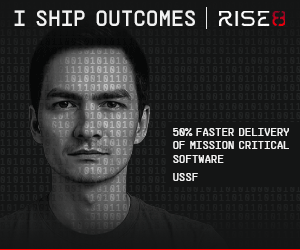So says Adm. James Stavridis, head of United States European Command and NATO’s supreme allied commander, Europe. Speaking Monday with defense reporters in Washington, D.C., Stavridis said mankind’s relative lack of experience in operating in the cyber domain—compared, for example, to sailing on the high seas for thousands of years—means that the international norms and codes of conduct are not yet in place, leaving it an untamed environment. But while there has been “a fair amount of probing” and “some destruction,” he said he doesn’t think there have been outright cyber attacks yet. He defined “attack” as taking down a significant portion of a nation’s infrastructure. However, in the case of NATO, the alliance members still need to come together and define exactly what a “cyber attack” entails since they are bound by treaty to defend one another from attacks.
The Space Force team responsible for developing advanced battle management capabilities wants to create a better pipeline for mature space domain awareness tools to move from the lab into the hands of operators.



